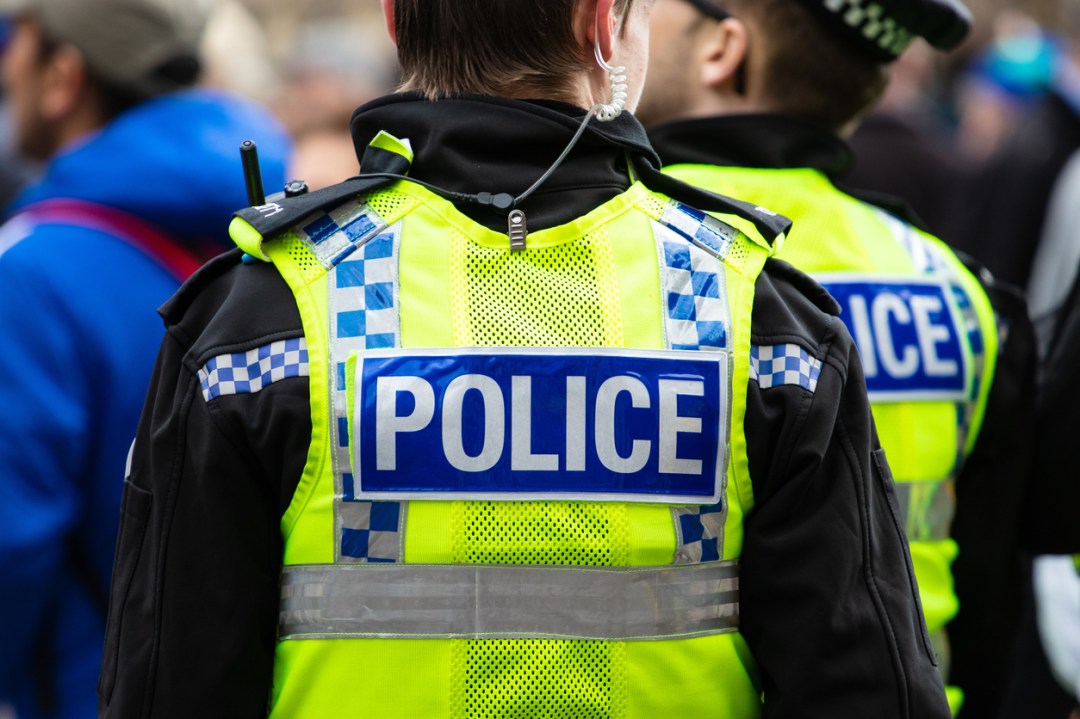These are busy times for the police watchdog. It’s just started an investigation into serious allegations of misconduct against Devon and Cornwall’s Chief Constable, Will Kerr, who’s been suspended. An inquiry has been announced into missed opportunities to root out the serial rapist, former Metropolitan Police officer David Carrick. And this week came an investigation into the police handling of an incident in which a woman was accused (wrongly) of dodging a bus fare.
It might seem odd for the Independent Office for Police Conduct (IOPC) to be examining a case of alleged fare evasion when there are so many other priorities, including fatal police shootings and deaths in custody. But after a social media clip of what happened sparked controversy, an inquiry became inevitable. The IOPC Director, Steve Noonan, said it had caused ‘significant community concern, with questions raised about the actions of the police officers involved’.
The footage, which lasts two minutes and 20 seconds, is disturbing. It shows two police officers trying to hold onto a black woman, as she screams and shouts. They place her in handcuffs. A few yards away, a little boy, her son as it transpires, is in tears. A female police community support officer (PCSO) kneels in front of him with her hands on his shoulders to keep him calm.
The events are played out on the pavement of a busy road in Croydon, south London, as passers-by film on their mobile phones. One man, who says he’s the woman’s brother, demands to know what’s going on. She’s been arrested for ‘fare evasion’, he’s told.
‘Wow, wow, wow,’ he says sarcastically. ‘Have you got nothing better to do with your time?’
The video has been viewed 3.7 million times on Twitter and shown extensively on television and other social media channels. But it doesn’t tell the whole story of what happened; clips taken from smartphones seldom do. Scotland Yard attempted to fill in the gaps in a statement which acknowledges how distressing the events were for the woman and her child.
‘The woman involved in this incident was asked to provide her ticket as she got off the bus, but did not do so. She was spoken to by a TfL [Transport for London] inspector, then by a PCSO and finally by a police officer. She continued to try to walk away and did not provide her ticket for inspection,’ said the Met’s Assistant Commissioner Matt Twist.
‘She was arrested on suspicion of fare evasion and was handcuffed. When officers were able to take her ticket from her so that the TfL inspectors could check it, they were able to confirm it was valid. She was immediately de-arrested and her handcuffs were removed,’ Twist wrote.
Even with that further detail, it would be unwise to draw conclusions about the conduct of the officers until the investigation has been completed. The former Commissioner, Dame Cressida Dick, fell into that trap in 2020 after the black athlete Bianca Williams and her partner Ricardo dos Santos were cuffed and separated from their three-month-old son when their car was stopped by police in west London.
‘Having seen some of the footage myself, I would say that any officer worth their salt would have stopped that car that was being driven in that manner and, secondly, my professional standards people have looked at it and they don’t see any misconduct,’ said Dame Cressida. The IOPC decided otherwise and ordered that five officers face a disciplinary hearing for alleged gross misconduct, though it has yet to take place.
Assistant Commissioner Twist has accepted that the fare evasion incident ‘raises questions’ about the extent to which police should intervene to help ticket inspectors when there are serious crimes on the transport system to respond to. He is right. Twist is also correct to identify the use of handcuffs as a possible ‘cause of concern’ – a contentious issue in the Williams case – and point out that ‘all uses of force must be proportionate and necessary in the circumstances’.
But there is a wider, underlying issue, too – about the ability of police officers to make the delicate and speedy judgments required in sensitive situations in the glare of a smartphone camera.
After nine years of workforce cuts and four years of rapid recruitment the police service is terribly unbalanced. The latest figures from the Home Office show that almost 54,000 police across England and Wales have been in the job for less than five years – 36 per cent of all officers. Do they have the skills to de-escalate a potentially explosive encounter? Are they confident enough to know when handcuffs must be applied and when they should be avoided? Have they got the ‘streetcraft’ that all good cops need?
It’s a problem that the service itself recognises and was highlighted in calls to Nick Ferrari’s programme on LBC. Lucy, a serving officer, said a lack of experience was a ‘big issue’. ‘No one considered that you knew the job unless you were in for ten or 15 years,’ she said.
Mark, who’d recently left the police, told the show that too many officers with know-how had departed. ‘Those people weren’t there to look up to, to help you, guide you… they had already long gone,’ he said. ‘There was no one to fill their shoes – it was people that were two or three years in before me who were tutoring me.’
Policing is a messy business. Officers routinely deal with people who are agitated, unwell or dangerous – and don’t want the law to be there. Cops may sometimes have to act forcefully, using handcuffs, a baton, spray or Taser. It isn’t pretty and it’s not pleasant to witness. They also do their job against a background of declining trust (for which they are partly responsible) – levels of confidence in the police among black people are shockingly low. When you add to that the fashion for the public to film everything and post it on social media the stakes become even higher and the scrutiny more intense.
So, let independent investigators be the judge of an officer’s conduct, after gathering all the evidence – not the army of online commentators. But the police service should be aware that we are in a new era. Phone footage and social media have exposed police practices and behaviour that have been largely hidden from view. Some of it we are questioning; some of it we don’t understand; some of it we really don’t approve of. This is not the moment for the service to retreat to a position of, ‘We’ve always done it like that’, or ‘You don’t know what we know’, but to listen to people’s concerns, admit where they’ve got things wrong and make improvements quickly, where they’re needed.
Otherwise there’ll be even more work for the watchdog.







Comments